
Upcoming events
Join us throughout 2026 for inspiring events, workshops, online panels and meetups

London • June 2 & 3, 2026
Check out the festival for modern engineering leadership

New York • September 15 & 16, 2026
Join 2,000+ engineering leaders at the first-ever LDX3 New York!
Upcoming online panels
-
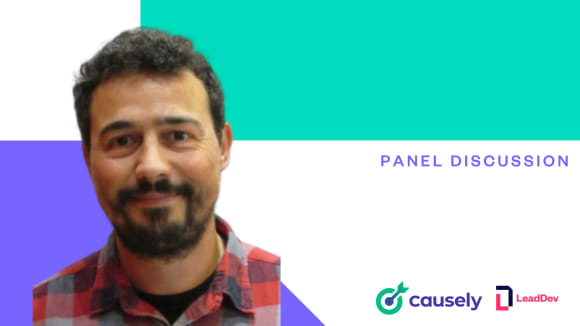 In partnership with Causely
In partnership with CauselyMaking sense of logs, traces, and metrics
February 19, 2026 • 5.00PMWith more complex systems comes more complex data. Here’s how to extract meaning from chaotic observability dashboards.
-
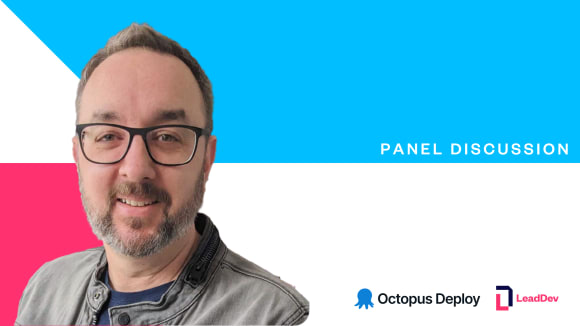 In partnership with Octopus Deploy
In partnership with Octopus DeployWhy feedback loops fail, and how to fix them
February 18, 2026 • 1.00PMHow to get things back on track when delivery pipelines drag.
-
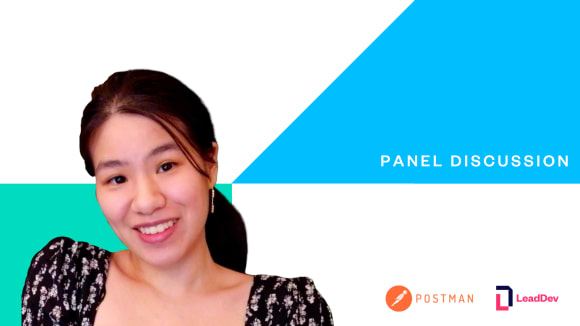 In partnership with Postman
In partnership with PostmanHow to avoid platform engineering anti-patterns
February 4, 2026 • 5.00PMWhat to do when your “golden paths” aren’t being used.
Free online workshops
-
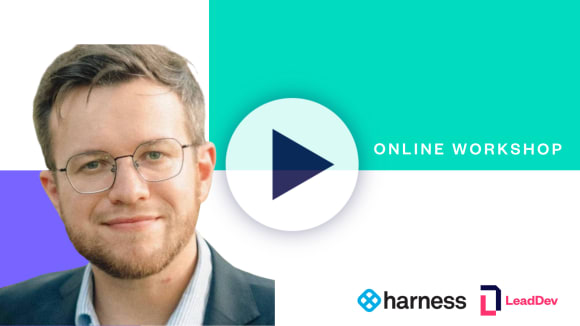 In partnership with Harness
In partnership with HarnessFrom Feature Flags to Measurable Impact
In this workshop, you can actively experiment with and benchmark your organization’s level of maturity.
-
 In partnership with Honeycomb
In partnership with HoneycombHow to understand the value of your code
Using observability tools to code with your eyes open.
-
 In partnership with CircleCI
In partnership with CircleCIMove faster without losing control
Overcome the false trade-off between control and agility by rethinking platform governance so that standards become speed multipliers, enabling developer flexibility while reducing risk.
Recent recordings
-
In partnership with Chainguard
Rooting out sneaky sources of toil
What to do next when unplanned work is killing velocity.
-
In partnership with Dash0
Are you ready for agentic observability?
Designing for observability in the age of AI.
-
In partnership with FusionAuth
User authorization just got 10x harder
What your old permissions model misses when AI agents are your users.

The Festival for Modern Engineering Leadership
London • June 2 & 3, 2026
A multi-stage festival of talks, activities, and real-world learning for leaders and their teams
Whether you’re a Engineering Manager, Tech Lead, Staff+, Director, VP, or CTO, you’ll leave with ideas and strategies to drive change.

2,500+
Attendees

6
Tracks of Content

150+
Speakers & Activity Hosts

150
Sessions
Featuring
Upcoming in-person events


New York • September 15 & 16, 2026
The festival for modern engineering leadership is coming to New York!

Berlin • November 9 & 10, 2026
Join the only mainland European conference built specifically for engineering managers
LeadDev meet-ups are expanding in 2026
We run free events year-round in cities all over the world
Highlights from our recent events
-
 In partnership with LaunchDarkly
In partnership with LaunchDarklyFrom code tsunami to controlled innovation: Launching software in the age of AI
How to harness the explosive speed of AI-driven development without losing control, compromising safety, or putting customer experience at risk.
-

What does innovation really mean? And how did Games Engineering navigate through it as a “startup” within Netflix
Learn how embracing paradoxes, discovery-driven learning, and integrative decisions enabled collaboration and unlocked innovation at Netflix.
-

Hold on, let me prompt that
Explore how to lead with clarity and conviction in the GenAI era, balancing powerful tools with authentic, independent thinking.
-

LLMs: An operator’s view
Explore a pragmatic approach to using LLMs to boost team productivity, enhance products, and evolve your leadership strategy.
-

Leveling up engineers in an AI-driven world
Learn how to mentor junior engineers in an AI-driven world by reinforcing core skills and balancing AI-assisted workflows.
Recent webinars
-
 In partnership with Chainguard
In partnership with ChainguardRooting out sneaky sources of toil
What to do next when unplanned work is killing velocity.
-
 In partnership with Dash0
In partnership with Dash0Are you ready for agentic observability?
Designing for observability in the age of AI.
-
 In partnership with FusionAuth
In partnership with FusionAuthUser authorization just got 10x harder
What your old permissions model misses when AI agents are your users.
-
 In partnership with PagerDuty
In partnership with PagerDutyGet smarter with every incident
This panel discussion is for SREs, platform, and DevOps leaders who are looking for strategies to make on-call feel more sustainable and effective. We’ll show you how to break that reactive loop, and the emerging tools and practices to help make your teams, and systems, smarter.
-
 In partnership with Harness
In partnership with HarnessThe AI capabilities that amplify your org
The 2025 DORA report marked a significant departure for the research organization, as it focused almost entirely on the impact of AI in the software development lifecycle. It’s key finding – that AI is an amplifier, for good and for bad – clearly resonated.
-
 In partnership with Draftt
In partnership with DrafttWhy software maintenance is stuck in 2015
The tech stack looks nothing like it did ten years ago, but the maintenance of these systems hasn’t kept pace, remaining slow, reactive and stressful.
-
 In partnership with Redgate
In partnership with RedgateThe database risks you can’t afford to ignore
From compliance breaches to fragile legacy databases, ignore these blinking red lights at your peril
-
 In partnership with Harness
In partnership with HarnessHow guardrails enable you to work at AI speed
AI risks we will move faster and break things more. Learn about the guardrails that enable you to safely release in the Age of AI
-
 In partnership with Cloudflare
In partnership with CloudflareEmbrace AI without losing control
How do engineering leaders move at AI speed without losing control and increasing delivery and security risks? You can do both.
-
 In partnership with Harness
In partnership with HarnessHow AI is increasing systems resiliency
Facing more code than ever, learn the resiliency best practices used by SREs, including where AI can help
-
 In partnership with Gitkraken
In partnership with GitkrakenMeasuring the AI impact on developer experience
How to measure the impact of AI tools and agents on developer experience, and link this back to the business
-
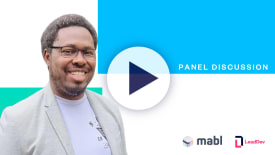 In partnership with Mabl
In partnership with MablAre you ready for agentic testing?
AI agents are no longer hypothetical — but are you ready to give them the keys to your test suite?
-
 In partnership with Honeycomb
In partnership with HoneycombInside our 2025 Engineering Performance Report
Uncover the data behind modern engineering performance and what it reveals about AI, observability, and the future of system reliability.
-
 In partnership with Harness
In partnership with HarnessAllow anyone to code with AI
How to build a culture that enables even the most skeptical developer to experiment with AI coding tools and fail fast.
-
 In partnership with O’Reilly
In partnership with O’ReillyMeasuring team performance isn’t getting any easier
Working smarter, not harder, to achieve high velocity.
-
 In partnership with Chainguard
In partnership with ChainguardThe surprising habits of high velocity engineering teams
Working smarter, not harder, to achieve high velocity.
-
 In partnership with Harness
In partnership with HarnessTake the fear out of vibe coding
How to use tried and tested tools and techniques to safely enable engineers to vibe code.
-
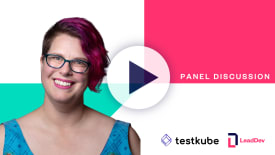 In partnership with Testkube
In partnership with TestkubeHow teams test at AI-powered velocity
Learn how elite cloud-native organizations scale their testing to match ever-increasing velocity demands.
-
 In partnership with Harness
In partnership with HarnessWhere AI can supercharge DevOps
The race is on to infuse DevOps workflows with AI, but where does it actually help?
-
 In partnership with FusionAuth
In partnership with FusionAuthYour guide to getting started with passkeys
Learn how to build a pragmatic AI strategy without chasing hype-driven distractions.
-

Build an AI strategy without falling for the hype
Learn how to build a pragmatic AI strategy without chasing hype-driven distractions.
-
 In partnership with Harness
In partnership with HarnessHow Barclays and Experian proactively manage tech debt
Watch LeadDev’s first virtual Engineering in Action panel for lessons from industry leaders who face tech debt head-on.
-
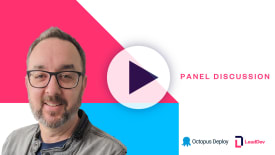 In partnership with Octopus Deploy
In partnership with Octopus DeployMeasuring productivity without freaking people out
How to keep a healthy culture when you put developers under the microscope
-
 In partnership with Stytch
In partnership with StytchAre you ready for AI agents?
AI is changing how apps get accessed – are your systems built to keep up?
-
 In partnership with Coder
In partnership with CoderHow to refactor without killing morale
Refactoring isn’t the problem; it’s how we manage it.
-
 In partnership with DX
In partnership with DXMeasuring the impact of AI in engineering
Insights from LeadDev’s inaugural AI Impact Report.
-
 In partnership with Honeycomb
In partnership with HoneycombEscape the observability maturity trap
How to assess where you are, and level up your observability culture, practices, and impact.
-
 In partnership with Cloudflare
In partnership with CloudflareHow to prioritize when modernizing legacy systems
The path to app modernization isn’t about fixing everything at once – it’s about fixing what matters most.
-
 In partnership with Harness
In partnership with HarnessDatabase changes slowing you down? There’s a better way
Is it time to bring database administrators into the DevOps circle?
-
 In partnership with
In partnership withAre you ready for the next generation of incidents?
Incident response was never easy. AI is about to make it harder.
-

How to get buy-in when you’re not the boss
Practical strategies for influencing without authority in cross-functional teams
-
 In partnership with Vercel
In partnership with VercelBridging the gap between requirements and technical detail
How to translate business needs into a clear technical roadmap? Leave ambiguity at the door





